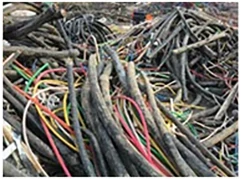Throwing away a TV might sound straightforward, but doing it responsibly involves a bit more than just placing it on the curb for garbage pickup. With rising concerns about electronic waste and its impact on the environment, proper disposal is not only an ethical obligation but also often a legal requirement. Here’s a detailed guide covering the best practices for disposing of a television, ensuring the process is seamless, environmentally friendly, and in compliance with regulations.

First, it’s crucial to understand why TVs require special disposal methods. Televisions, especially older models, contain hazardous materials such as lead, mercury, and cadmium. These substances pose significant risks to the environment and human health if not disposed of correctly. Additionally, recycling components like glass, plastic, and metal helps conserve natural resources.
1. Assess the Condition of Your TV
Before deciding on disposal, evaluate whether your TV is still functional. If it is, consider donating or selling it. Many non-profit organizations, thrift stores, or charitable foundations accept working electronics. Websites and platforms like eBay, Craigslist, or Facebook Marketplace offer avenues to sell a functioning TV, providing it with a second life and reducing waste.

2. Explore Take-Back Programs
Many electronics manufacturers and retailers offer take-back programs. Brands such as Samsung, LG, and Best Buy have initiatives designed to recycle their products responsibly. Some programs operate regardless of where you purchased the TV, providing a convenient and eco-conscious disposal option.
3. Locate a Certified E-Waste Recycler
Find a local e-waste recycling center. Ensure that the facility is certified by organizations like e-Stewards or R2. These certifications guarantee that your TV will be recycled according to the highest environmental and ethical standards. A quick online search or a visit to websites like Earth911 or the Environmental Protection Agency can help locate a nearby certified recycler.
how do you throw away a tv
4. Check for Municipal Collection Events
Many municipalities host designated e-waste collection days.
These events provide an accessible way to dispose of electronic devices responsibly. Contact your local waste management authority or check their website for upcoming events. Such collections are often free or low-cost and emphasize correct handling of hazardous components.
5. Understand Legal Implications
Be aware of local laws regarding electronic waste disposal. Some regions mandate fines for improper disposal. Knowing the legal requirements ensures you comply with local statutes and contribute to broader environmental protection efforts.
6. Consider Upcycling or Reusing Parts
If you’re inclined towards DIY projects, consider upcycling your TV or reusing its parts. Components like speakers or casings can be repurposed creatively, minimizing waste and potentially saving money on similar new purchases.
While disposing of a TV might seem like a minor task, making informed choices can significantly impact environmental conservation efforts. Educating yourself on the available options not only ensures legal compliance but also promotes sustainable practices. Whether through donation, recycling, or take-back programs, each responsible action contributes to reducing e-waste and fostering a cleaner planet.



